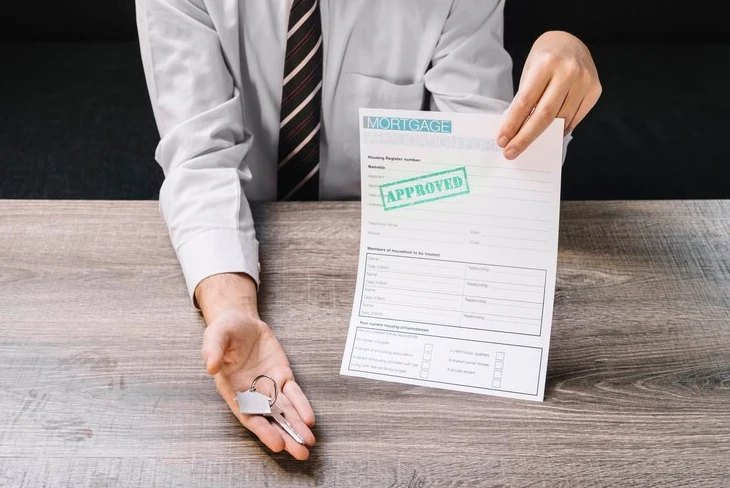Did you know that FHA loans help North Carolina’s home buyers who don’t qualify for regular mortgages? These loans offer affordable options. But how do they differ from typical loans? These loans are backed by the Federal Housing Administration.
An FHA loan in North Carolina needs a credit score of at least 580. If your score is 500 to 579, you can still get a loan. But you must pay 10% down if the loan amount exceeds conventional loan limits. To buy a house, you can only borrow up to 96.5% of its value. That means you must have at least a 3.5% down payment.
Your debt-to-income ratio is important, too. For a Consulting an FHA-approved lender in North Carolina ensures clarity on requirements, your total debt shouldn’t be more than 57% of your income. Your housing expenses must be under 31%. These rules help make sure you can pay your mortgage without stress.
FHA loans also need mortgage insurance. You will pay 1.75% at the start. Then, your annual premium can be from 0.45% to 1.05%. But here’s a plus. You can use gift money for your down payment with an FHA loan. Your whole down payment can even be a gift.
Now you know about the FHA loan requirements in NC. Remember, the application process has several steps. This includes pre-qualification, appraisal, review, and closing. If you’re looking into an FHA loan in North Carolina, we’ll cover everything you need to know to move forward confidently.
Key Takeaways
- FHA loans in North Carolina require a minimum credit score of 580 and a down payment of at least 3.5%
- The debt-to-income ratio should be below 57%, and housing expenses should be below 31%
- Mortgage insurance is required: a 1.75% upfront premium and annual premiums (0.45%–1.05% of the loan amount, varying by loan term and amount)
- The application process includes pre-qualification, appraisal, review, and closing
- Eligibility requirements include credit score, down payment, loan types, debt-to-income ratio, housing ratio, and compliance with FHA loan limits (the maximum loan amount the FHA will insure for your property type and location)
- Benefits of FHA loans include low down payment, down payment assistance, higher debt-to-income ratio, variety of loan types, seller contributions, and assumable loans
Steps to Apply for an FHA Loan in North Carolina

Getting an FHA loan in North Carolina has clear steps. This makes the process smooth. Here’s what you need to do:
1. Find a Mortgage Broker
Start by finding a mortgage broker in North Carolina. They need to know about FHA loans. They’ll help you choose the right loan for you.
2. Pre-Qualification
Getting pre-qualified comes next. It measures if you can get a loan. The lender checks your finances, like your credit score and how much you earn. It’s a key step before you apply.
3. Find a Home
After pre-qualification, look for a house. Find a place that fits your budget and is right for you. Make sure the neighborhood and the house are perfect for your family.
4. Fill Out the Application Form
When you’ve picked a home, apply for the loan. You’ll fill in an application form. This form asks for things like the kind of loan you want and where the house is. Make sure your info is correct and complete.
5. Property Appraisal
The HUD appraiser then checks the house’s value. This step ensures the home is worth what you’re paying. It’s a big part of getting an FHA loan.
6. Underwriter Approval
The underwriter then looks at your financials. They make sure you can repay the loan. They check your credit, work history, and more. Their OK is very important for your loan.
7. Complete Closing
After the underwriter says yes, you’re close. The last step is closing. You will have to pay some fees. You might ask the seller to help pay for some of these. Make sure to read and understand everything you sign.
Following these steps makes getting an FHA loan in North Carolina easier. It also helps you have a better chance of getting a loan.
Eligibility Requirements for FHA Loans in North Carolina
To get an FHA loan in North Carolina, you must meet some criteria, including specific loan limits. This includes:
- Credit Score: The FHA requires a minimum credit score of 580 for a 3.5% down payment. Borrowers with scores between 500–579 may qualify but must pay 10% down (note: individual lenders may impose stricter requirements).
- Down Payment: You should have at least 3.5% of the home’s sale price ready. This means you can’t finance more than 96.5% through the loan.
- Loan Types: You can pick either a 15-year or a 30-year loan term.
- Debt-to-Income Ratio: Your monthly debt payments can’t be more than 57% of your income.
- Housing Ratio: Your housing expenses shouldn’t be more than 31% of your income per month.
If you meet these requirements, including the FHA loan limits, you can start your FHA loan application. The FHA loan offers many benefits to homebuyers in North Carolina, including flexible loan amounts guided by the FHA loan limit.
Benefits of FHA Loans in North Carolina
FHA loans in North Carolina are a top choice for many. They provide several key benefits, including potentially higher loan limits set by the Department of Housing and Urban Development. These include:
Low Down Payment
One big plus of FHA loans is the low down payment needed in North Carolina. Buyers can get an FHA home loan with only 3.5% down, making it an attractive option for many. This makes buying a house easier without needing a lot of cash upfront.
Down Payment Assistance
FHA loans also have down payment help for those who qualify. This can lower the purchase costs even more. It helps make owning a home more doable for more people.
Higher Debt-to-Income Ratio
FHA loans let you have a higher debt-to-income ratio than usual loans. If you have more debt, you can still maybe get a loan. This means more people can consider buying a home.
Variety of Loan Types
There are many loan types to pick from in North Carolina with an FHA loan. You can choose between 15-year and 30-year loans. This lets you find the best deal for your budget.
Seller Contributions
Sellers can contribute up to 6% of the home’s purchase price toward closing costs (not the down payment). They can give up to 6% of the house’s price. This makes buying a house easier on your wallet.
Assumable Loans
FHA loans allow buyers to assume the existing loan terms, which can be advantageous if interest rates rise. If you sell your house, the buyer can take over your FHA loan. This might lock in a good interest rate for the buyer and fall within FHA loan limit guidelines. It’s helpful for both the buyer and seller.
These advantages make FHA loans a smart choice for buying a home in North Carolina.
How to Apply for an FHA Loan in North Carolina

Getting an FHA loan in North Carolina is easy. You start by talking to a lender or broker. They’ll help you with the process and give you the info you need about how to qualify for an FHA loan.
Before you apply, make sure you have all the important paperwork. You’ll need tax returns, proof of how much you earn, and other financial stuff. Having this ready will make applying smoother.
Know how much money you might get before you apply. In North Carolina, the max loan for a single home is usually $498,257. Being aware of this can help you plan better.
If you’re looking for more options, there are some. Streamline refinancing is good for people with an FHA loan. It needs less paperwork and no new appraisal or checking of your income. FHA 203(k) loans help pay for home upgrades.
Conclusion
FHA loans offer an affordable path to homeownership in North Carolina, especially for those who may not qualify for traditional mortgages. By understanding the requirements, application process, and benefits, homebuyers can make informed decisions and navigate the process with confidence. With a low down payment, flexible debt-to-income ratio, and various loan options, FHA loans provide a valuable opportunity for many to achieve their dream of owning a home.
By following the steps and meeting the eligibility criteria, North Carolina homebuyers can unlock the doors to their new home with an FHA loan. Additionally, being aware of the FHA loan limit is crucial for applicants.